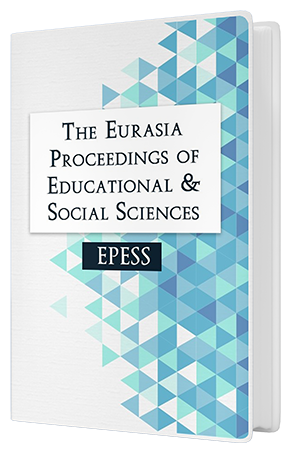DISCOURSE COMMUNITY CHARACTERISTICS AND E.S.P TEACHING/ LEARNING PREREQUISITES
Keywords:
Community, discourse community, E.S.P. teaching, earning at university levelAbstract
The notion of “discourse community” has been widely used in different literatures in the 20th and the beginning of the 21st Centuries. Different scholars (Hymes, Fish, Swales, Lave and Wenger, etc.) have given their own definitions / interpretations of what ‘a community’ or ‘a discourse community’ is. Therefore, we shall try to investigate the various notions and definitions of ‘discourse community’ and its different characteristics, focusing mainly on the field of teaching English for Specific Purposes (henceforth E.S.P). Globalisation, the market economy and the development of different technologies have entailed new jobs for which the use of different foreign languages has become necessary. Algeria has always been aware that the goals of economic development cannot be achieved through the official and national language alone (Arabic), but together with the teaching/learning of various foreign languages at different levels of the educational system. At university level, through the teaching of English as a subject in Science Departments, and the introduction of the L.M.D (Licence/Master/Doctorate) reform, the Ministry of Higher Education aims at a better training with adequate qualifications that allow the students to join the workforce and satisfy the needs of the socio-economic sector.The aim from teaching Languages for Special Purposes (L.S.P) in general and E.S.P in particular, is to answer the learners’ needs to become competent users of the target language to reach various purposes. L.S.P / E.S.P teaching addresses in most cases a restricted audience, a category of very specialised students who – after training and experience- will join a specific discourse community. In the present paper, we shall specify the characteristics of a scientific discourse community and suggest some prerequisite conditions for teaching / learning ESP adequately at university level.Downloads
Published
Issue
Section
License
Copyright (c) 2016 The Eurasia Proceedings of Educational and Social Sciences

This work is licensed under a Creative Commons Attribution-NonCommercial-ShareAlike 4.0 International License.
The articles may be used for research, teaching, and private study purposes. Any substantial or systematic reproduction, redistribution, reselling, loan, sub-licensing, systematic supply, or distribution in any form to anyone is expressly forbidden. Authors alone are responsible for the contents of their articles. The journal owns the copyright of the articles. The publisher shall not be liable for any loss, actions, claims, proceedings, demand, or costs or damages whatsoever or howsoever caused arising directly or indirectly in connection with or arising out of the use of the research material. All authors are requested to disclose any actual or potential conflict of interest including any financial, personal or other relationships with other people or organizations regarding the submitted work.




